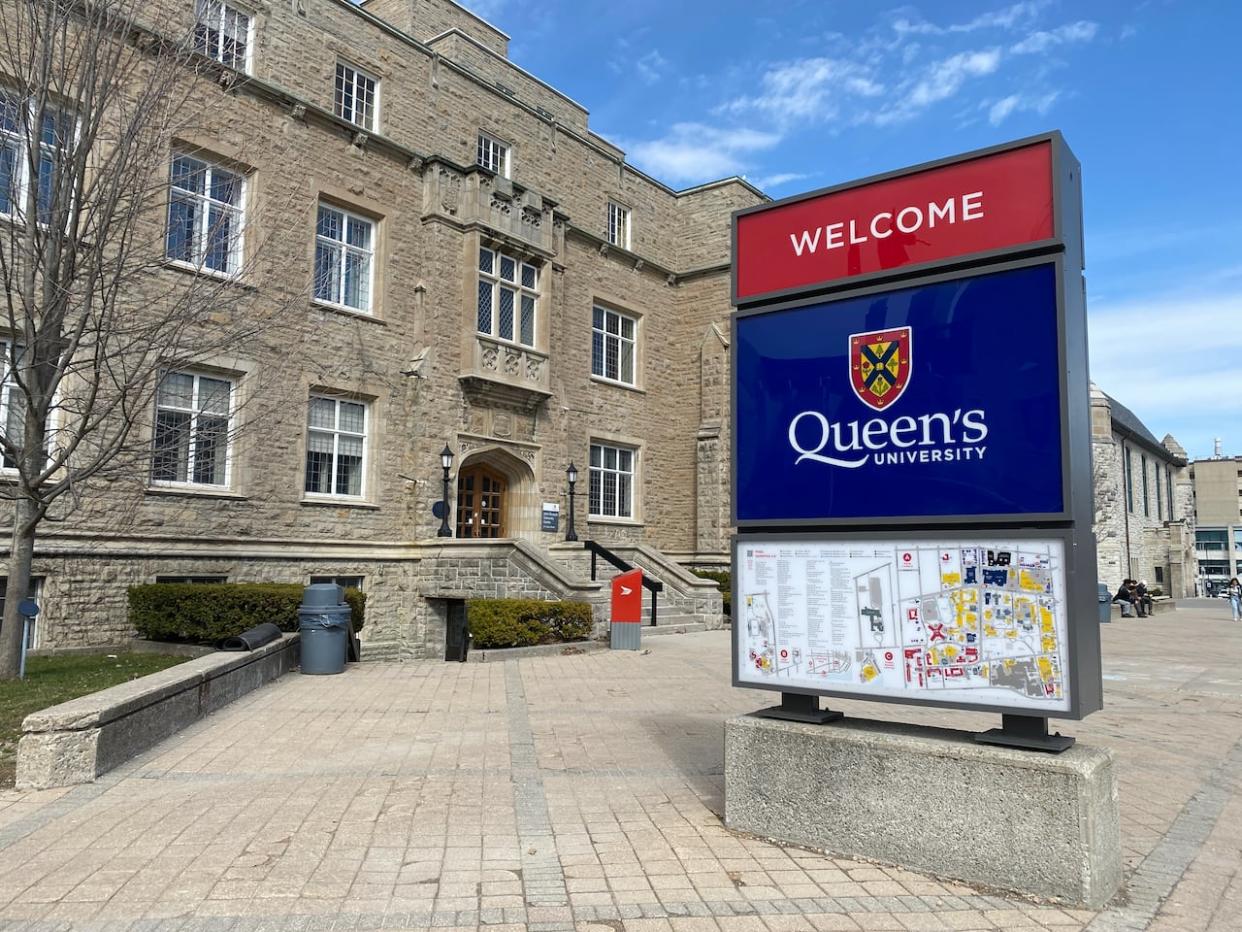University funding crunch provincewide, Queen's principal says

Amid concerns and confusion over the financial health of Queen's University, its principal Patrick Deane says he's confident the school will "weather the current difficulty," but added that post-secondary funding is a challenge across Ontario.
Deane made the comments on Thursday during an interview with CBC Radio's Ontario Morning.
The uproar kicked off back in December when provost Matthew Evans told a Queen's town hall he was concerned about the university's survival as it continues to exhaust its reserve funds.
According to a report by The Queen's Journal, Evans said "unless we sort this out, we will go under."
The university is making progress on saving money, Deane said. Updates from Queen's claim a hiring freeze and faculty reductions have cut the projected deficit from $62 million to $48 million.
Deane told Ontario Morning the issue is with the university's operating budget, which is "distinct from other things such as the endowment [and] pension investments."
Over the years, faculties have built up surpluses that are carried forward, Deane said.
"However, since 2019, because of a combination of factors, maintaining operations at their normal level has required the faculties to draw down those reserves," Deane added. "It is those reserves that provost Evans was referring to."
In a statement sent to the Queen's community on Nov. 30, Evans said the university is "not able to access funds outside of our operating budget to cover operating expenses."
When asked why Evans mentioned the possibility of Queen's closing its doors, Deane said "it is a hypothetical prediction of what would happen if one took no action. I think they need to be read in that way."
Deane also said he's concerned for the university's reputation given the close attention on the its finances, but he is "confident that we will emerge from these challenges."
Queen's isn't alone with its funding shortage, Deane added. He said Ontario's ongoing tuition freeze coupled with enrolment caps "leaves all universities in this province struggling to make the equation work out…. This is a shared problem."

Queen's University principal Patrick Deane says he's confident the school will survive its current funding challenges, but the problem is shared across other universities in Ontario. (Queen's University/YouTube)
Modest tuition increase 'probably due,' expert says
Glen Jones, a professor of higher education at the Ontario Institute of Studies in Education, told Ontario Morning that a modest increase in tuition is "probably due at this point in time."
Jones referred to a government-commissioned report released in November 2023. In it, an expert panel recommended Ontario end its tuition freeze and boost per-student funding to help post-secondary institutions.
In a statement after the report was released, Ontario's Colleges and Universities Minister Jill Dunlop said the province needs to ensure post-secondary institutions are operating "as efficiently as possible" before agreeing to tuition increases.
If the provincial government does opt to raise tuition, Jones said it also has to consider funding for student financial assistance.
Most of the "new money" in Ontario's post-secondary system has come from international students, Jones added.

Glen Jones is a professor of higher education at the Ontario Institute for Studies in Education at the University of Toronto. He says a modest tuition increase is 'probably due' in Ontario. (Submitted by Glen Jones)
In January, the federal government announced it will approve approximately 360,000 undergraduate study permits for 2024, a 35 per cent reduction from 2023.
The announcement sparked fears across the country about rising tuition, program cuts and layoffs on campus.
Jones said international students — and their pricey tuition — have become "almost an industry, unfortunately."
"I think we've often lost sight of the fact that we're talking about students who deserve a very good experience," Jones said.
Queen's has difficult challenges ahead of it, Jones said. Because of that, he said transparency and communication are critical.
"They simply have to keep their community informed, have the community understand the challenges they're facing and have some clarity in terms of the direction that they're going," Jones said.


